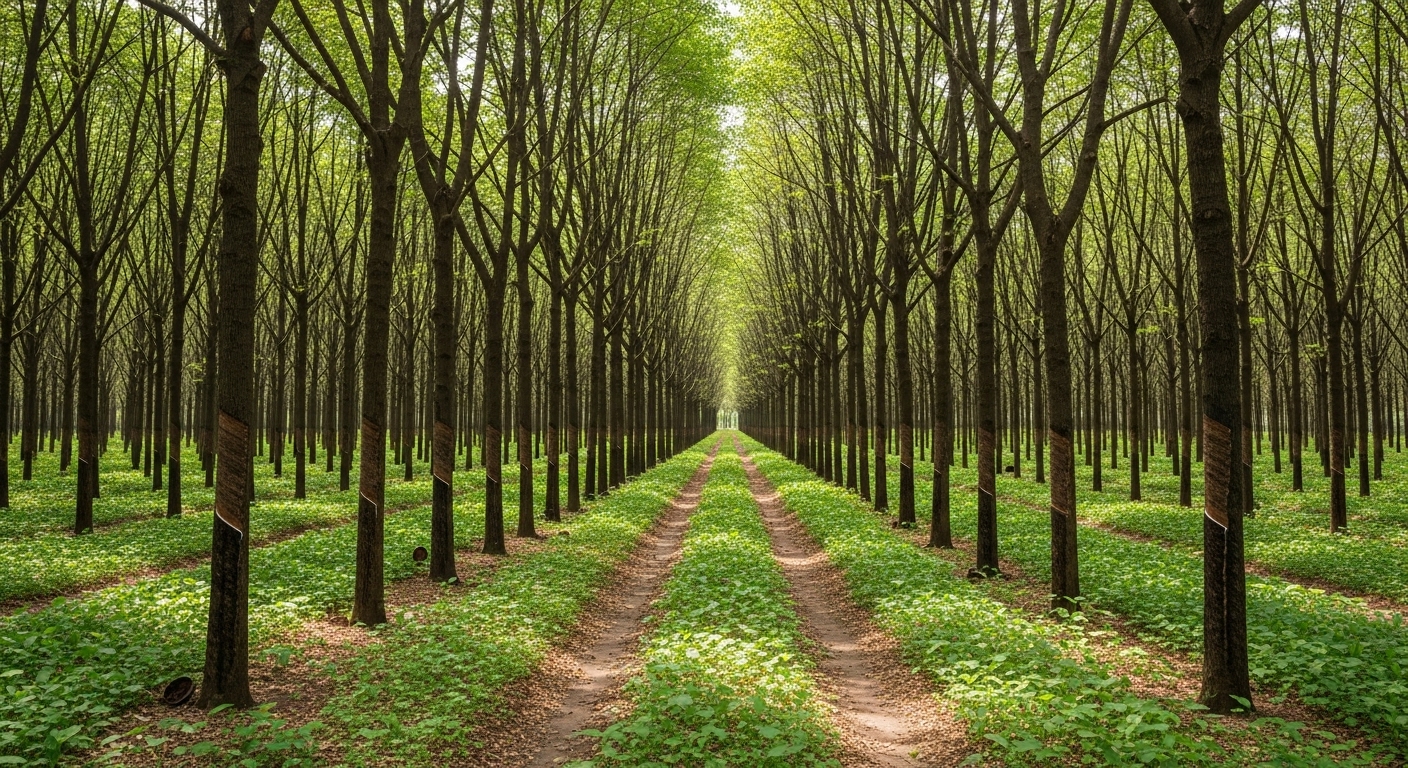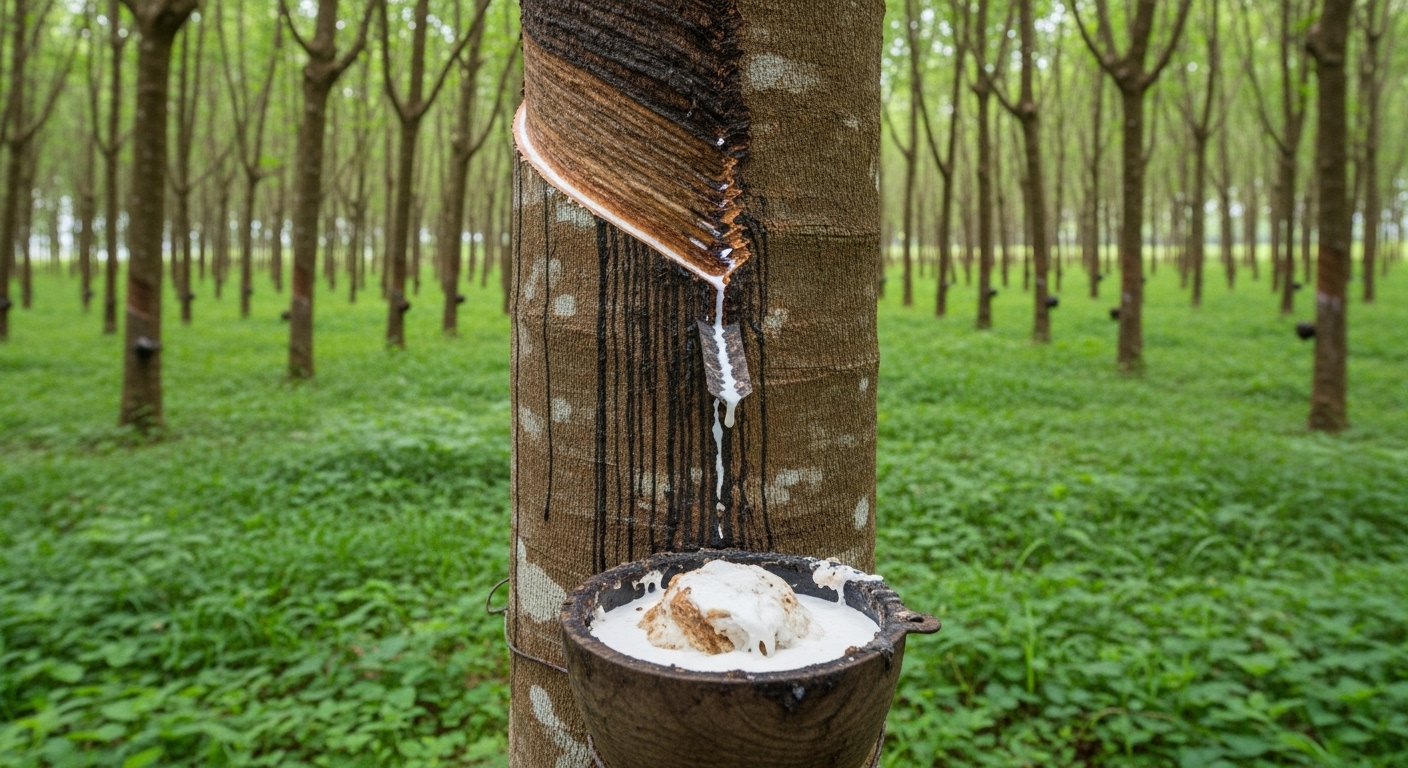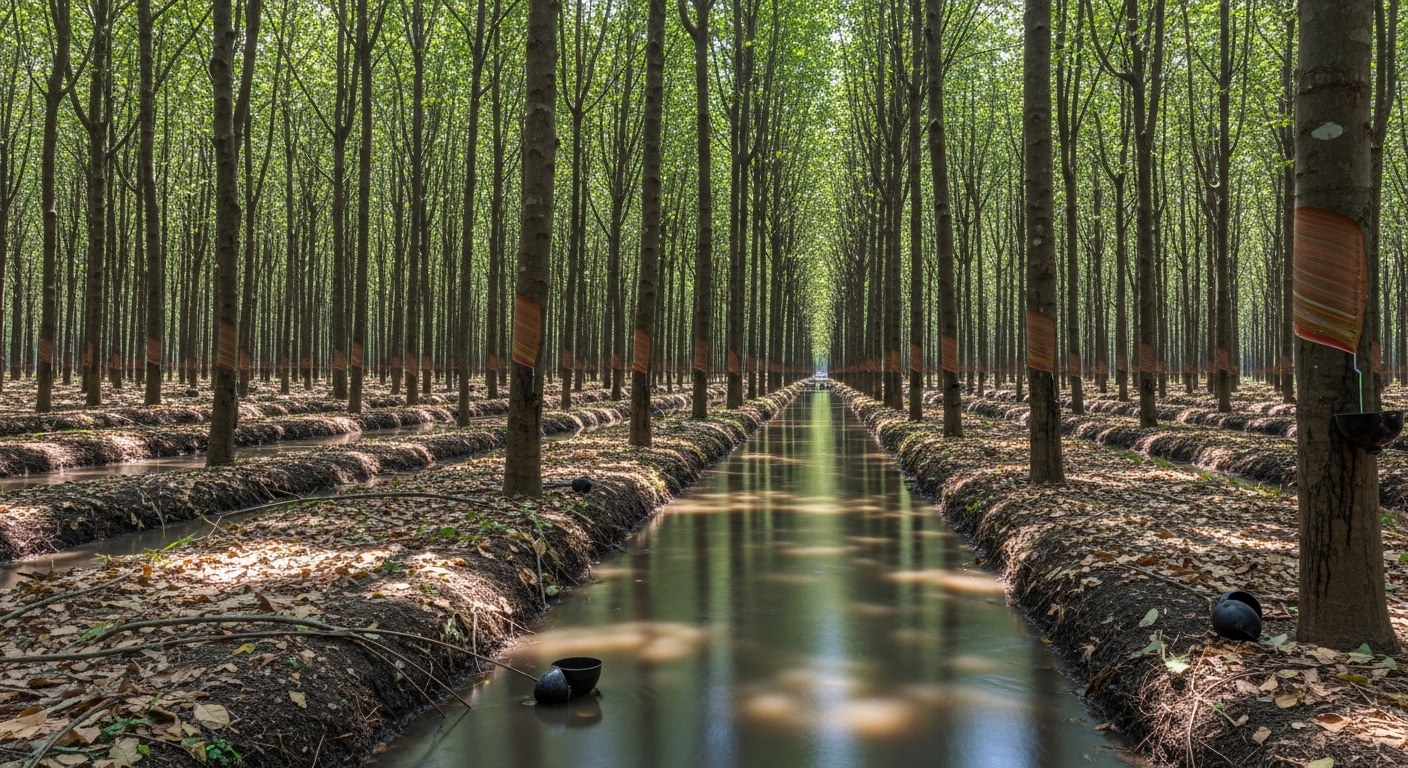Cambodia could earn $208 million from natural rubber exports in the first half of 2025, with an estimated 112,595 tons of rubber exported, an official report said on Tuesday, as the volume is a potential resource to be used as a key basis in efforts to attract foreign investment to set up factories to process these products locally.

Statistics from the General Department of Rubber of the Ministry of Agriculture, Forestry and Fisheries showed that the value of these rubber exports fell by 2.3 percent and the volume of exports fell by 20 percent, while one ton of rubber was worth an average of $1,853. More expensive than the price of rubber sold in 2025, about $335.
This decrease is because Cambodia is increasing the use of domestic rubber to fill some industries, especially to fill the production of rubber tires for vehicles, which until now has been increasing the export of finished products.
According to statistics, the amount of rubber used in the country has increased significantly, to approximately 53,361 tons, an increase of 92 percent. With a domestic sales revenue of $93.5 million.

So far, countries that are purchasing natural rubber from Cambodia There are Malaysia, Vietnam, Singapore and China, but instead of exporting these products to those markets, Cambodia should increase its efforts to attract these buyers to open industrial factories in Cambodia instead.
According to the report, the potential for rubber production is still large, with Cambodia planting rubber trees on a total area of 425,443 hectares, of which 330,259 hectares, or 77.6 percent, are old enough to extract rubber.
In the future, Cambodia may continue to have even more natural rubber reserves. Therefore, instead of exporting, stakeholders should use it as a strategy to create value-added industries and attract more domestic and foreign investment in the sector that comes from natural rubber production.

So far, Cambodia has taken a step forward by attracting tire factories one after another, and in the past 6 months, it has just attracted four more tire factories in Svay Rieng and Sihanoukville provinces, with a total investment of $774 million and the potential to create an additional 3,400 jobs.
This type of natural rubber, in addition to making high-quality tires, It still has the potential to attract investment in the processing of other products such as medical and industrial gloves, high-end footwear products, healthcare products ranging from mattresses to condoms, natural baby products, as well as many other products. Please work hard. Our rubber industry has its own raw material production base, which is different from the garment industry where we have to import raw materials from outside.
In the case where the growth of investment in processing products from rubber raw materials increases, we can free ourselves from light to medium-sized industries to an additional extent.

